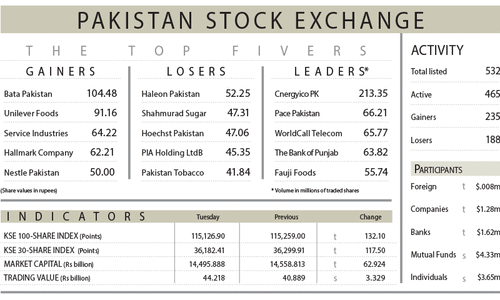They are among Istanbul's most iconic sights — magnificent waterside mansions strung out along the Bosphorus as the waters of the strait dividing Europe and Asia lap almost at their front doors.
Once the preserve of the Ottoman elite and affluent foreigners working in what was Constantinople, the mansions, known as yalis, were made famous in novels and more recently through modern Turkey's hugely successful TV soap operas.
But dozens are now up for sale as Turkey enters a more troubled economic period and owners seek to cash in their luxury assets.
Prospective new owners can expect to pay up to $100 million (87 million euros) for one of the premium properties — but have the chance of obtaining a Turkish passport thrown in.
With such a hefty asking price — as well as the opportunity of becoming a Turkish national — buyers are likely to be foreigners, heralding a drastic shake-up in the mansions' ownership.
'Dominated by Qatar'
Real-estate brokers in Istanbul, contacted by AFP, said that out of around 600 waterside yalis along the Bosphorus, 60 were currently up for sale.
The Turkish lira this summer plunged in value as markets reacted to a bitter spat with the United States and many buyers think now is the perfect time to snap up property assets while the currency is cheap.
Sales have to be in Turkish lira — President Recep Tayyip Erdogan's government has banned the sale, rent or leasing of property being conducted in, or indexed to foreign currencies.
Brokers say that in a major turnaround, prospective buyers are almost never Turkish and are likely to be from the Middle East, especially Ankara's closest Gulf ally, Qatar.
"With the lira losing value, Istanbul has become a paradise for people from the Gulf with higher purchasing power in their hands," Hamed Elhamian, sales director at ANKA Invest, told AFP.
"Investors from the Gulf believe that the lira will rise in value in the near future and their investments will appreciate in a very short time," he said.
Ugur Ayhan, a luxury real-estate consultant, also said foreign buyers had been showing greater interest in Turkey over recent months.
"Our potential clients are largely from Middle Eastern countries. We see people from Azerbaijan and Iran but we have a customer portfolio dominated by Qatar," he told AFP.
'$250,000 not enough'
Along with the financial incentives, another attraction of buying a property is the possibility of gaining a Turkish passport, which offers eased or visa-free travel to key destinations.

Under a decree issued last month, Turkey made it easier for foreigners to become Turkish citizens by reducing the financial and investment criteria for citizenship.
Foreigners now need to have $500,000 deposited in Turkish banks — down from the previously required $3 million — while fixed capital investment was cut from $2 million to $500,000.
And crucially, individuals owning property worth $250,000 or more are now also entitled to become Turkish citizens, compared with the previous value necessary of $1 million.
Yet Ayhan said that, while the latest measures would ramp up demand for newly built apartments in Istanbul, a yali was an ultra-luxury asset beyond the range of most buyers.
"It is not possible to buy a luxury apartment, let alone a yali with $250,000," he said.
'Signature of power'
Among the hundreds of mansions along the two sides of the Bosphorus, 360 of them are of historic value, according to real-estate broker Pinar Ayikcan Tuna.
For the historic mansions, potential buyers need to receive permission from both the development directorate of the Bosphorus and the council of monuments for any renovations or to fortify a building's exterior facade.
"Turkish laws require that historic buildings are renovated or restored according to the original," Ayhan said.
Some of the mansions are still owned by members of the Turkish elite, including the two largest family conglomerates: Koc and Sabanci.
However, said Elhamian: "The domestic interest in the real estate is very low."
"Many local Turkish citizens and developers are looking to sell their real estate to foreigners who are looking to buy luxury properties worth more than the $250,000 needed for citizenship."
Soap opera advertising
Turkish soap operas, often with dozens of episodes lasting two hours each, hold the Arab world in thrall and have also tempted potential buyers from the Middle East.
Many of the soaps, which range from modern romances to historic dramas, have evocative settings in waterside mansions on the Bosphorus. Tour companies in Istanbul even offer Arab tourists bus trips to the locations.
Interest surged in particular following the hit 2008-2010 series "Ask-i Memnu" ("Forbidden Love"), which ran to almost 80 episodes and was wildly popular in the Arab world.
Its dramatic scenes of love and betrayal within a rich Istanbul family — based on an over 100-year-old novel but updated to the present day — were filmed in a historic yali in the city's Sariyer district.
"Those soap operas are actually our big advertisement overseas," Tuna said.
"People from Middle Eastern countries come and buy these kind of properties here because having a Bosphorus mansion in Istanbul is like a signature of power and it is a very unique beauty."
Reha Grandjean, French-Turkish and family owner of a mansion on the Bosphorus, said to own such a place was special.
"It is a particular property because as soon as one of them is put on sale, everyone wants their 'yali', everyone wants their little paradise."














































